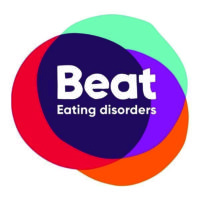Depression
-

Accelerated cortical thinning correlates with early signs of depression
The brain undergoes structural changes as it develops over childhood, but whether abnormal structural changes are associated with emerging depressive symptoms in adolescence is unknown. Now, a longitudinal study that enrolled 205 participants aged 8-25 years without signs of depression has used magnetic resonance imaging (MRI) to monitor these brain changes over adolescence.
Read more -

Supporting Prepubertal Children with anorexia nervosa – a clinician’s experience
Five patients under the age of twelve have presented with Anorexia Nervosa in the last six months to our community CAMHS Eating Disorders Team, in the North of England, representing 16% of our average annual caseload.
Read more -

Eating disorders – Foreword from the Editor
Welcome to this edition of The Bridge which focuses on eating disorders.
Read more -

The ACAMH story, the Board…
From its earliest inception ACAMH has attracted a diverse range of professions and individuals – all with the shared aim of improving the mental health of children and young people. Its current board reflects that more than ever with an eclectic mix of clinicians and academics who have spent their careers working to help some of the most vulnerable in our society.
Read more -

Body Dysmorphic Disorder
Body Dysmorphic Disorder is a common, yet typically under-recognised and challenging to treat condition. This talk gives a whistle-stop tour of what BDD is, highlighting the common issues clinicians face when assessing and treating BDD and how to overcome these. We will draw on clinical experience and the evidence-base to help increase knowledge and confidence […]
- Event type
- Twilight Meeting
- Location
- London
-

Persistent picky eating predicts pervasive developmental disorders in children
Picky eating — characterized by food refusal, unwillingness to try new foods or eating a limited variety of foods — affects 14-50% preschool children and is often considered by clinicians as a normal phase of child development.
Read more -

Infants of mothers with eating disorders show neurobehavioural and cognitive defects
Eating disorders can have serious adverse clinical, social and psychological outcomes in affected patients, but whether maternal eating disorders are associated with negative outcomes in newborns is unknown.
Read more -

Beat – helping those affected by eating disorder
Beat is the UK’s eating disorder charity, and is a champion, guide and friend to all affected by these serious mental illnesses.
Read more -

Understanding eating disorder susceptibility requires an integrated sociological, biological and genetic approach
In 2015, Kristen Culbert, Sarah Racine and Kelly Klump compiled a Research Review on the underlying causes of eating disorders for the Journal of Child Psychology and Psychiatry.
Read more -

Expressed emotion varies with eating disorder diagnosis
Unique patterns of expressed emotion characterize communication within families with children affected by eating disorders, according to new research. Researchers across the USA recruited 215 adolescents (aged 12-19 years) with eating disorders and their families, and asked them to complete the Standardized Clinical Family Interview.
Read more